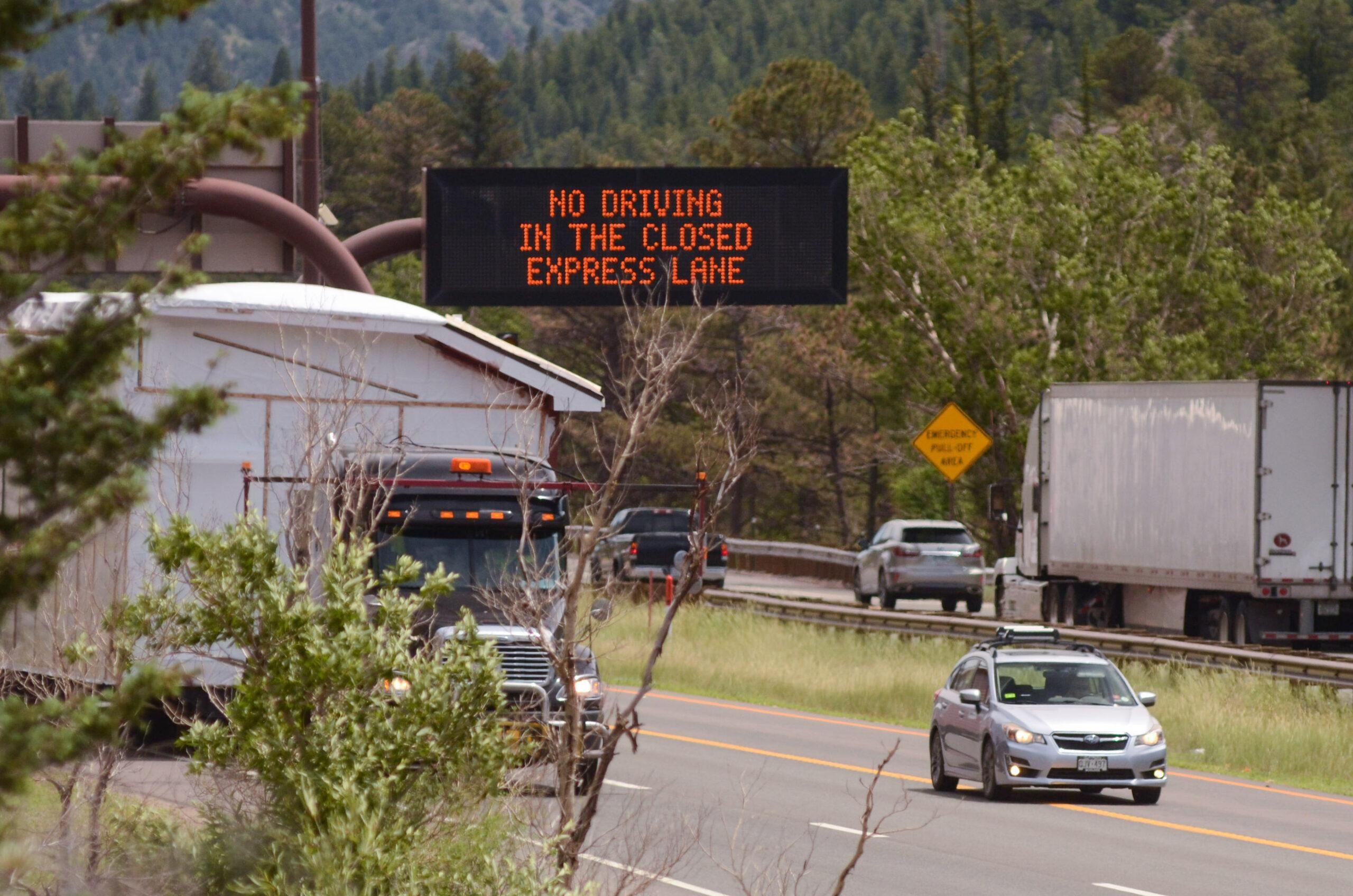
Abusers of the part-time Interstate 70 toll lanes near Idaho Springs will pay for their rule-breaking ways starting on Friday.
Fines for using the lanes while they are closed, weaving in and out of them, or driving an oversized vehicle in them will start at $75 and increase to $150 after 20 days. A state law allowing the fines caps them at $250.
The fines are meant to keep road users safe, Colorado Department of Transportation spokesperson Tim Hoover said in a press release.
“Motorists in violation of these simple rules may think they’re saving travel time by driving dangerously or ‘outsmarting the system,’ but in reality, they’re creating life-threatening risks for themselves and everyone else on the road,” he said in a statement.
The pair of 13-mile toll lanes just west of Idaho Springs use I-70’s shoulders. Because they are narrower than a standard 12-foot lane, federal regulations limit their use to 100 days a year — CDOT typically opens them on busy days like weekends and holidays.

The state-owned business that is managing the toll lanes is using sensors and cameras to identify rule-breaking drivers. There have been many: A state analysis found nearly 50,000 instances of drivers illegally using the eastbound lane while it was closed — just in 2020.
The system will not enforce speed limits, though officials say speed limits still apply to toll lanes.
A month-long grace period began in June. Since then, the state has mailed more than 5,500 warnings to drivers who’ve broken the rules — the vast majority for lane weaving.
“The number of warnings issued during the grace period is extremely concerning,” Hoover said.
Citations will be mailed to the vehicle’s owner and do not need to be served in person, officials say. They can be paid — and contested — online.
The state can also prevent violators with unpaid fines from registering their vehicles, though officials have said such a measure would be used only in “extreme cases.”
The fines were originally set to start over the winter, but the rollout was pushed to this summer. The automated enforcement system will eventually be expanded to cover the state’s growing network of toll lanes, like C-470, U.S. 36 between Denver and Boulder, Interstate 25 and other sections of I-70.









